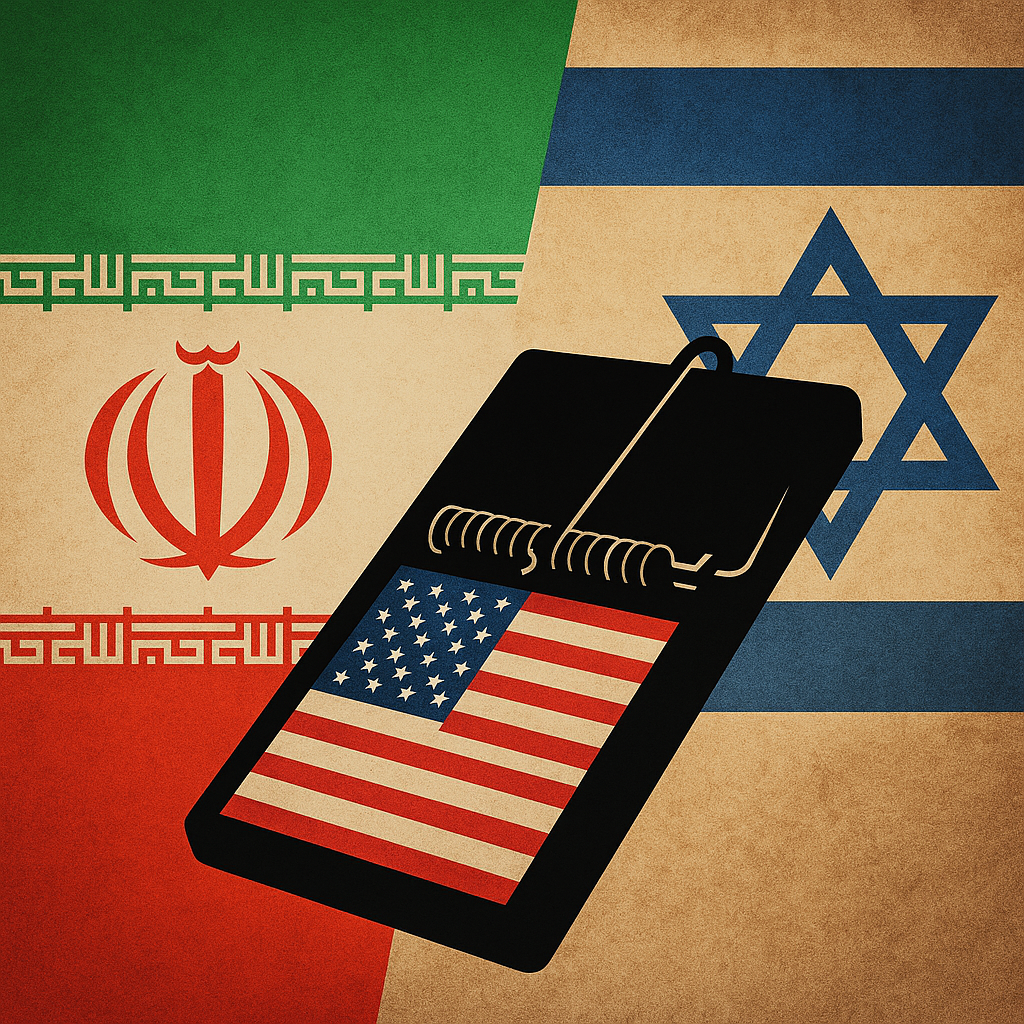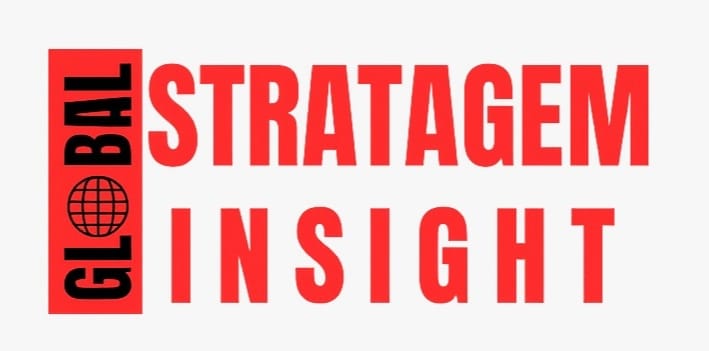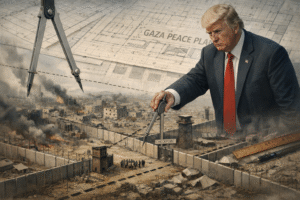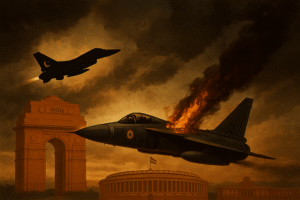Tehran’s quiet victory

The image symbolizes the strategic entrapment of U.S. diplomacy amid growing tensions between Iran and Israel, highlighting Tehran’s subtle geopolitical maneuvering.
US is trapped by the Israel lobby and forced into a zero-sum game
US President Donald Trump gave a green signal to Israel before 13 June 2025 for an attack on Iran. Following this approval, Israel launched a military operation code-named “Operation Rising Lion”, aimed at attacking Iranian nuclear sites and some of the key military commanders, and Nuclear scientists. Apparently, the operation was successful in achieving its intended objectives. It was the first time (except during Iran war with Iraq) that any country has attacked Iran directly, since the Islamic Revolution.
The attacks resulted in counterattacks from Iran, targeting one of the major Israel’s city Tel Aviv through drones and missiles. A cycle of attacks and counterattacks has now begun. With these developments, different pressing questions arises: How Trump, who is not a war-monger, has been trapped into fighting this war? Is the regime in Iran going to deter Israeli attacks? What cost US is going to pay for its possible participation?
The problem pertaining to Trump’s proneness to war can be better understood by drawing arguments from Prof. Mearshiemer and Stephen Walt famous book, Israel Lobby and US Foreign Policy, in which they argued that no matter if it is the President of Republican’s or Democrat’s, whether centrist or far-right. The President will adopt the policies aligned with the interests of Israel lobby. One of the most influential groups in this lobby is AIPAC (American Israel Public Action Committee), consisting of most influential American jews and gentiles. These groups views the interests of America and Israel identical, though the writers had taken the opposite view.
The writers in order to support their view gave reference to America’s invasion of Iraq. According to them, neo-conservatives within the lobby pushed the US to invade Iraq and topple Saddam Hussain because of the alleged assumption about weapons of mass-destruction (WMD), as a result of which Iraq was devastated, upset the balance of power in the region which led to the emergence of Iran as a regional power in the Persian Gulf. Furthermore, in 1990s, when Iran tried to improve its relations with US, it was the lobby and its American supporters who encouraged the Clinton administration to pursue a confrontational policy towards Iran. Also, the neo-conservatives of Israel Lobby opposed diplomacy (e.g. JCPOA / nuclear deal with Iran) and favored economic sanctions and military option.
Before, being trapped, President Trump successfully escaped two times from the lobby’s trap to push US to involve directly in the war. First, in July 2024 when Israel killed Hamas leader in Tehran. Second, in April 2025, after Iranian embassy in Damascus was attacked by Israel. After the attack, Trump administration and its European and regional allies worked urgently to prevent further conflict. The US even established indirect hotline with Iran via Oman to ensure retaliation was either avoided or remained limited. Even after the strike, Washington continued mediating, this time to temper Israel’s reaction. Despite these efforts, Israel and Lobby succeeded in persuading Trump administration to announce direct support for Israel if the regime in Iran is not going to surrender.
It is obvious that Iran will show its deterrence against the Israeli attacks because it is the matter of existential threat for the clergy regime in Tehran, said by Fawaz Gerges (expert of Middle East and International Relations and a professional at London School of Economics). Iran has made clear, after Trump’s announcement of supporting Israel directly in the war, that we will target US strategic interests. With the help of Axis of resistance ( informal alliance between Iran-backed militias and Political organizations), Iran has already demonstrated its capacity of destroying US strategic interests, as evident from the recent attack of Houthis on the ships in the Red sea, making it difficult for the Western allies to use the trade route of Red Sea.
The central question now is that how US National interests are going to suffer if US becomes directly involved and the crises deepens? Firstly, it would provide more incentives and justification to Iran for building its nuclear weapons as to deter the threats. If Iran succeeds, Saudi Arabia will follow, as it has already made clear that it will develop nuclear weapons if Iran does— will be followed by Turkey, Egypt and the proliferation will continue.
Secondly, it will increase resentment among Iranian masses, possibly it would result in anti-Americanism feelings. Thirdly, it will provide the regime in Tehran a chance to channelize the popular discontent, which is developed due to poor economic conditions of people as a result of economic sanctions, by igniting Nationalism, which the US might otherwise have leveraged for diplomatic pressure.
Fourthly, If US participates directly, resentment between Iranians and other people having sympathy for the regime would be radicalized, increasing their recruitment chances into the terrorist outfits, which can cause serious challenges for the regional stability and peace. Lastly, if US proceeded with isolating Iran and not going to engage with them diplomatically, it would mean lumping the potential foes into a unified front, including China, Russia, Iran and North Korea.
It is unlikely that US, without making some serious changes in its maximum pressure approach towards Iran and unconditional support for Israel, could secure substantive desirable gains in the region. The line helping to understand the diverging interests of US and Israel in the Middle East has been deliberately blurred by the lobby and Israel supporters by contending that interests of both countries are identical, though the ground realities are different, and US has no visible interests in the war with Iran. In the meantime, it is clear that if US participate directly, Iran would be in a better position than US and Israel will be relatively at most disadvantageous position.



